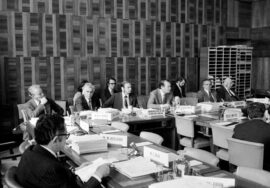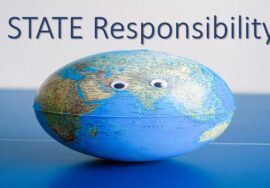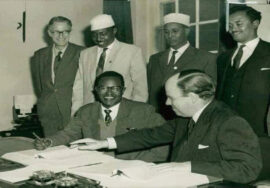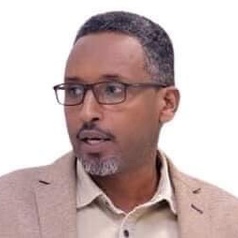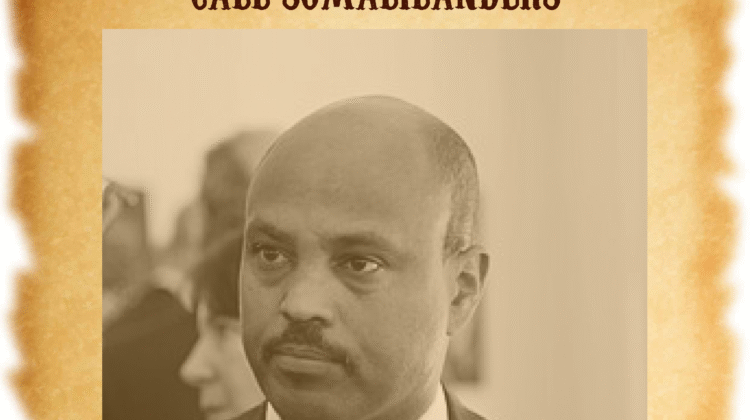
Counter- Analysis Against Mohamed Abdillahi Omar Statement Minister of Foreign Affairs
Counter- Analysis of Mohamed Abdillahi Omar Statement Minister of Foreign Affairs
This assumption is being made by Mohamed Omar: Dear participants, I would first like to express my gratitude to the Social Research and Development Institute (SORADI) for bringing together prominent members of Somaliland society, including its development practitioners, government officials and researchers, as well as its donors, to discuss issues of such great relevance to Somaliland’s future. The topic of this year’s annual conference, “Somaliland statehood and recognition & the ongoing dialogue with Somalia” is of great importance to me not only in my role as the Minister of Foreign Affairs and International Cooperation, but also as a Somaliland citizen with aspirations that my country achieve recognition in the near future.
Counter-Analysis: Somaliland’s declaration of statehood and pursuit of recognition clashes with the purported dialogue with Somalia.
– Talking with Somalia spreads numerous false ideas: Somalia is the parent-state and you are a separatist region seeking self-determination, while denying Somaliland gained self-determination on 26th June 1960 from Great Britain during decolonization.
This assumption is being made by Mohamed Omar: The unprecedented opportunity presented by the establishment of talks with Somalia must be capitalized on through the collective determination, expertise, and guidance of Somaliland society as a whole. In a democratic polity such as ours, the government’s role is to reflect the will of its people; the government alone cannot set the foreign policy agenda without both being granted the authority to do so by its people and mobilising the people’s collective efforts. Our 21 years of struggling to establish peace, security, democracy and development have taught us a lot, and this experience is invaluable for our engagement with the outside world on matters concerning our sovereignty. Conferences such as this provide the opportunity for the Somaliland people to carefully reflect on our position in the world, our future aspirations, the pragmatic path we must take in order to achieve these aspirations, as well as the means through which society as a whole can work together in order to move along that path.
Counter-Analysis: Following that meeting, did the Somaliland government adopt the intellectuals’ suggestions? I assume not, given your administration, and Muse Bihi’s subsequent Kulmiye 2.0, have persisted in negotiations with Somalia.
This assumption is being made by Mohamed Omar: I regret that, due to a scheduling conflict resulting from prior work-related commitments, I am unable to attend this important meeting. I have produced this letter to act in my absence as a means for outlining the government’s position regarding the topics of the search for recognition and dialogue with Somalia. The views and knowledge provided by the participants of this two-day event will be documented for my thoughtful consideration upon my return from abroad, and they will no doubt not only inform my policy decisions, but also act as the basis for future discussion I hope to engage in with civil and political society at future dates.
Counter-Analysis: While feigning concern for Somaliland’s population, your continued dialogue with Somalia as Foreign Minister reveals a spineless approach. There’s no reason to correct you any further.
This assumption is being made by Mohamed Omar: We are living in historic times, in which the international community is no longer able to ignore Somaliland in its discussions over the creation of a peaceful and democratic Horn of Africa. This was a direct result of the government’s bold decision to develop a more proactive form of diplomacy in which our country would no longer wait for the international community to hand over our much-deserved recognition, but would instead go out and convince the world of Somaliland’s right to statehood through acting as a valued international partner in the affairs of the region.
Counter-Analysis: In 14 years, why didn’t both administrations of the Kulmiye party work on creating and implementing concrete foreign policies across their global offices? Therefore, you, Bihi Yonis, and the rest of the Kulmiye party failed in establishing a robust foreign policy for the nation. Given your unsatisfactory past work, I wouldn’t hire you even for a dishwasher position.
This assumption is being made by Mohamed Omar: Such a change of course was not made by any particular branch of government, political party or segment of society, but instead came as a result of deep consultations with a broad range of civil society representatives and an endorsement from the people, traditional leaders, and an overwhelming proportion of the two houses of the legislature, who legally mandated Somaliland’s participation in international conferences related to Somalia affairs. Such unity of purpose and mutual understanding of what is at stake must continue to direct Somaliland’s efforts regarding dialogue with Somalia.
Counter-Analysis: I understand that your administration is required, by a bicameral law, to engage with Somalia—a nation that has been Somaliland’s biggest enemy for 65 years. Did you consider, however, that speaking with Somalia, Somaliland’s arch-nemesis, was a mistake?
This assumption is being made by Mohamed Omar: The resolution to enter into the talks was based on careful deliberations in which it was agreed that dialogue with Somalia would provide new opportunities for the country, opportunities in line with our overall foreign policy strategic framework. The risks involved in such as change of policy, although real and of considerable consequence, can be limited so long as the Somaliland government and society is willing to proceed with vigilance and caution, and to hold transparent and meaningful dialogue before embarking on any new territory.
Counter-Analysis: No opportunity exists for dialogue with Somalia: Somaliland has lost its airspace, faced livestock embargoes from Somalia, and seen economic infrastructure development hindered. Somalia transitioned from TFG to the Somalia Federal Government, while Somaliland continues to be recognised de facto as a concept promoted by past administrations and others as well. Somaliland’s talks with Somalia have cost it more international recognition of its statehood. Understanding that basic statement would lead you to realise that notion endorsing of Somaliland’s secession by contradicting the legal status of 26th June 1960.
This assumption is being made by Mohamed Omar: The potential and immediate benefits for opening up dialogue with Somalia include:
This assumption is being made by Mohamed Omar: Providing an avenue for Somaliland to negotiate a mutually agreed-upon independence with its former co-nationals (as was done by South Sudan and Eritrea); =
Counter-Analysis: Wrong assumption, Neither South Sudan nor Eritrea have had independence previously. Somaliland is completely unlike them; comparing them is absurd, as I’ve heard UN members say. We must avoid repeating the mistakes of South Sudan’s failed government and Eritrea’s descent into authoritarianism. Nonetheless, the comparisons drawn by politicians and large organisations between vastly different things are unhelpful and lack substance. It’s beyond understanding that after 30 years, the international community still hasn’t built a stable Somalia, resulting in an unpredictable future.
This assumption is being made by Mohamed Omar: Maintaining the separate and unique status of Somaliland in international diplomacy, as Somaliland is now an internationally acknowledged actor in a diplomatic process;
Counter-Analysis: It is hyperbolic statement, since Somaliland international diplomacy didn’t increased nor decreased.
This assumption is being made by Mohamed Omar: Offering a concrete mechanism/process for dealing with the recognition question that other countries can commit to or join in on;
Counter-Analysis: I’m confused. After 14 years of the Kulmiye party, what system does Somaliland use to manage recognition and support from other countries? Nothing at all.
This assumption is being made by Mohamed Omar: Affording Somaliland a possible place at the table during international discussions on issues with relevance to our country;
Counter-Analysis: Another exaggerated statement! During the Red Sea international talks, did Somaliland receive an invitation? Absolutely not!
This assumption is being made by Mohamed Omar: Allowing for cooperation with Somalia on security, trade, transportation and immigration issues, among others, that willing demonstrate Somaliland’s willingness to help stabilise Somalia even if acting as an independent state.
Counter-Analysis: What reasons might Somaliland have for working with its greatest enemy, Somalia? If the governments of Somaliland and Somalia are friendly, it is highly unlikely that their respective populations are not, as the policy of targeting the Isaaq people continues in Somalia’s territory.
This assumption is being made by Mohamed Omar: This conclusion show why Somaliland Somalia talks were initiated
Counter-Analysis: First, according to many documents wrote about London Talks of Somaliland-Somalia were financial incitive:
- The Somaliland Development Fund (SDF) was established in 2012. Its purpose is to provide a single vehicle for development partners to support Somaliland’s development goals
- Somaliland’s acceptance of Somalia as its parent state means that de jure recognition requires Somalia’s approval; otherwise, only brave nations would recognize Somaliland disregarding the internation laws of secessionist region.
- Both Kulmiye administrations are under fire for potentially harming Somaliland’s future by seeking independence through clandestine agreements, neglecting the considerable risks involved similar to 1960s.
- The unification of the two countries on 1st July 1960, was an illegal act that overturned Somaliland’s 26th June 1960, declaration of independence. In 2012, though, Kulmiye pushed the narrative of a unified two-region in one state, portraying Somalia as the parent state and Somaliland as a separatist region seeking independence. In all of human history, no nation has ever attempted to gain independence a second time.
Mohamed Omar narrative in conclusion: Although the agreement reached in Chevening and endorsed by Presidents Silanyo and Sheikh Sharif in Dubai in June of 2012 undoubtedly adds a new and exciting element to our recognition efforts, the Somaliland-Somalia dialogue does not constitute the totality or even the majority of our future foreign policy work going forward. We will stay true to the principles and strategy that have guided my work when I took office two years ago.
We will deepen economic, diplomatic, security and cultural relations with our traditional allies; expand our diplomatic presence and support to new friends in Africa, Europe and the Arab World, as well as other countries with influence in the region and the UN Security Council; and enter into agreements with and seek membership in regional and international organizations so as to build our case for recognised statehood. We will pursue a foreign policy that promotes national development and foreign investment in order to overcome unemployment and inequalities in the short term, and build a strong, prosperous and inclusive nation in the long term. Establishing trade and development links with other countries are important not only for their immediate benefits to the lives of our people, but also for establishing mutually advantageous relationships that will build allies sympathetic to Somaliland’s independence.
After laying out the government’s foreign policy vision, I would like to conclude my contribution to the discussing by posing questions that may help in framing the debate. These questions represent some of those the Somaliland society must consider in order to develop a strong foreign policy going forward:
How can government officials, politicians, religious and traditional leaders, the local NGO community, the business community, the Diaspora, scholars and academics, and the average Somaliland citizen be brought together in order to speak with one voice and take action to convince the international community of Somaliland’s right to statehood?
How will the relationship between Somaliland and Somalia develop over the next few years as Somalia attempts to build its state, and how must Somaliland prepare for these changes?
Can deepening cooperation with Somalia on practical matters such as security, trade, telecommunications, travel, etc. enhance Somaliland’s attempts at achieving recognition, or will they only create more risks?
Is there an alternative to the foreign policy path I just described? If so, what would it entail and what practical steps would it offer Somaliland for proactively working towards achieving recognition?
I again thank the participants for their input on these important issues and hope the dialogue initiated by SORADI leads to more fruitful discussion of such matters in the future.
Allah MahadLeh,
HIGH-TREASON AGAINST ITS PEOPLE: Dr. Mohamed Abdillahi Omar: 28th July 2010 – 25th June 2013
HIGH-TREASON AGAINST ITS PEOPLE: Mohamed Behi Yonis 25th June 2013- 25 October 2015
Somaliland Minister of Foreign Affairs and International Cooperation



